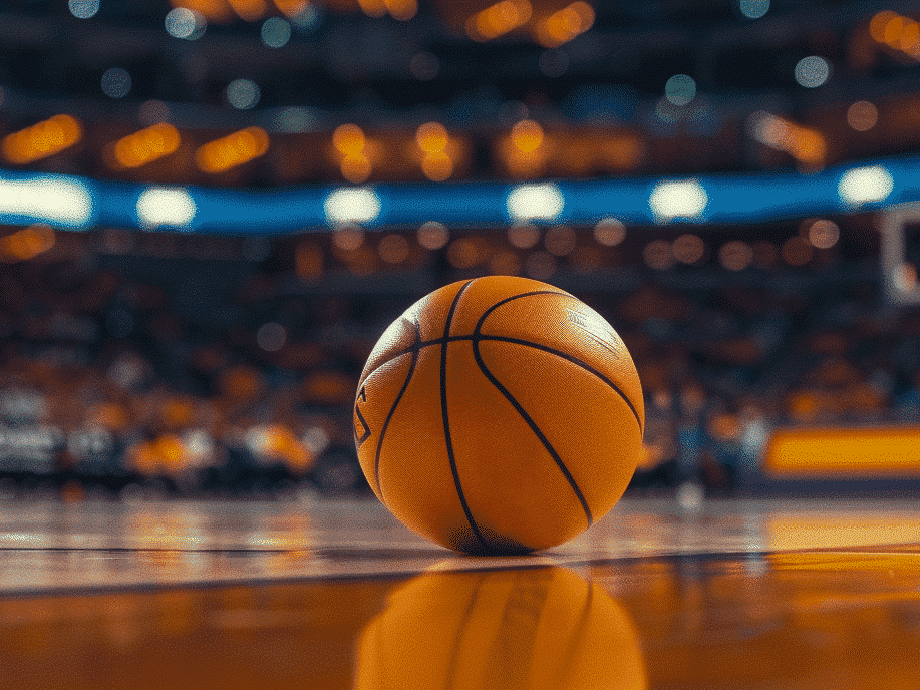Key Takeaways
- A severe bike accident involving Jack McKinney led to his coma and a shakeup in the Lakers’ coaching staff, eventually paving the way for Paul Westhead and then Pat Riley to lead the team.
- The Lakers became the Showtime Lakers post-accident, clinching five NBA championships and revolutionizing basketball with a fast-paced, entertaining style of play.
- Despite rumors and controversies surrounding the accuracy of the accident details, McKinney’s innovative coaching legacy lives on through the game’s evolution.
Let's Go Beyond, to Bring You Back
Let's get you the compensation you're entitled to. Get a FREE Consultation today.
Let's Go Beyond, to Bring You Back
You deserve the compensation you’re entitled to, call for your FREE Case Review today.
The Fateful Bicycle Accident
On what appeared to be an ordinary day, McKinney chose to cycle to a meeting with his assistant, Paul Westhead. When he neared a stop sign, his bike’s gears jammed, causing him to tumble and strike his head. This accident resulted in a severe injury, plunging him into a coma. McKinney, who had been leading the Lakers with a new up-tempo style of play, was suddenly removed from the picture, throwing the team into a state of uncertainty.
Initial reports suggested a straightforward bicycle accident, yet as discrepancies emerged, doubts about the accounts’ accuracy began to surface. Did the brakes fail, or was there more to the incident than meets the eye? Amidst the swirling uncertainty, one thing was clear – the Lakers’ future had taken an unexpected turn, as reported by the Los Angeles Times.
The Day of the Accident
November 8, 1979, started like any other day. McKinney was en route to a tennis court, a routine journey that ended in an accident that would ripple through the NBA. The incident, however, was just the beginning of a series of events that would reshape the Los Angeles Lakers and the NBA’s landscape.
Injuries and Recovery
McKinney’s tumble led to a severe head injury, resulting in a three-day coma. When he finally woke up, the diagnosis was grim – a significant post-traumatic brain injury. His lengthy recovery period, coupled with his inability to fully recuperate, clouded prospects of his return to coaching.
Although McKinney was medically cleared to return to coaching duties by mid-March, the landscape of the Lakers had drastically changed. His absence necessitated the Lakers to acclimatize and progress, triggering a reshuffle in the team’s coaching responsibilities.
Immediate Impact on the Lakers
The accident occurred just 13 games into the Lakers’ season, forcing the team into an unexpected transition during Magic Johnson’s rookie year. Paul Westhead, McKinney’s close friend and assistant, was appointed as the interim coach, marking a significant change in the team’s coaching landscape.
As Westhead’s role as head coach cemented, contact between the Westhead and McKinney families dwindled deliberately, mirroring the unease elicited by the abrupt change. McKinney’s direct involvement with the Lakers diminished, as his participation was limited to occasional scouting, and he no longer engaged in practices or visited his office.
Houston Bicycle Accident Law Firm
Get Compensated For Your Injuries & Damages! Call Us For A FREE Case Review And Know What Your Case Is Worth.
The Coaching Shuffle
Post-accident, the Lakers underwent a series of coaching changes that ultimately led to the rise of the Showtime Lakers. With McKinney unable to return, Paul Westhead took over as the interim head coach. Westhead’s tenure, however, was not permanent, and the torch was soon passed to Pat Riley, initially an assistant under Westhead, who would go on to lead the Lakers during their 1980s run of NBA titles.
Paul Westhead Steps Up
Following the accident, Paul Westhead, originally an assistant coach under McKinney, found himself propelled into the spotlight. He took on the role of interim head coach, managing the position with composure amidst pressure. As McKinney’s recovery extended, Westhead transitioned from interim to the official head coach position, a move that unfortunately led to McKinney losing his job.
The personal and professional relationship between Westhead and McKinney was close, so much so that McKinney’s wife introduced Westhead as McKinney’s brother to gain hospital visitation. This incident reflected the trust between the two families and the depth of the bond that Westhead and McKinney shared.
The Rise of Pat Riley
Pat Riley’s journey from a broadcaster to a head coach is a testament to his talent and adaptability. Initially hired as an assistant by Westhead, Riley quickly rose through the ranks, taking over as the head coach of the Lakers following Westhead’s dismissal.
Riley’s promotion marked the beginning of a successful era for the Lakers. Under his leadership, the Lakers clinched four NBA championships in the 1980s, winning 17 out of the first 20 games he coached.
The Showtime Lakers: Success Under New Leadership
The Showtime Lakers, as they came to be known, emerged from the ashes of adversity. Under the leadership of Westhead and Riley, the Lakers secured five NBA championships in the seasons of 1980, 1982, 1985, 1987, and 1988. The Lakers became renowned for their dynamic, fast-paced offensive style, captivating basketball fans across the globe.
The Showtime era wasn’t just about winning; it was about revolutionizing the game. The Lakers transformed basketball into a high-energy spectacle, creating an entirely new and thrilling game-time experience.
NBA Finals Victories
The Lakers were a force to be reckoned with during the Showtime era, clinching NBA Finals victories in:
- 1980
- 1982
- 1985
- 1987
- 1988
Their first championship in eight years came in 1980, with Westhead at the helm, after finishing the regular season with a record of 50 wins and 18 losses.
These victories transcended mere statistics; they embodied the Lakers’ resilience, adaptability, and talent. Each championship marked a milestone in the Lakers’ journey, shaping their legacy and etching their name in the annals of NBA history.
The Birth of Showtime
The Showtime Lakers were born out of McKinney’s up-tempo style of play, which was further developed by Westhead and Riley. This philosophy transformed Lakers games into high-energy entertainment spectacles, complete with a live band and dancers, creating a unique game-time experience.
Magic Johnson’s outstanding passing capabilities and swift court transitions harmonized perfectly with the fast break-centric Showtime offense and other players like Kareem Abdul-Jabbar. These orchestrated movements on the court were akin to a nightclub act, aligning with Jerry Buss’s aim for an entertaining basketball experience that went beyond the game itself.
Key Players and Rivalries
Key players such as Magic Johnson, Kareem Abdul-Jabbar, and James Worthy, whose skill sets and teamwork were crucial, steered the Showtime Lakers. Their fast-paced, flashy style of play not only won games but also hearts, earning them a dedicated fan base.
Significant rivalries emerged during this time, adding to the Showtime Lakers’ allure. The rivalry with the Boston Celtics, in particular, produced memorable matchups, fueling the competitive fire and adding another layer of excitement to the game. Pat Riley’s masterful tactics and strategies, such as employing a 1-3-1 half-court trap to quicken the pace of the game, played a crucial role in leading the team to five championships during the Showtime era.
McKinney’s Post-Accident Career
Though McKinney’s time with the Lakers ended suddenly, his basketball career was still far from conclusion. Despite the hardships ensuing the accident, McKinney continued to significantly contribute to the NBA. He moved to the Indiana Pacers as their head coach, where he was honored as the NBA Coach of the Year in 1981.
McKinney’s influence extended beyond the Pacers. He coached the Kansas City Kings and served as an assistant for the Milwaukee Bucks and Portland Trail Blazers. Despite a brief stint with the Kings, his impact on the teams he coached was significant, leaving a lasting legacy in the NBA.
Coaching the Pacers
McKinney’s time with the Pacers was a testament to his resilience and dedication. Despite facing obstacles, he guided the Pacers to their inaugural playoff appearance and their first triumphant season in the NBA post the ABA-NBA merger. His efforts earned him the NBA Coach of the Year award in 1981, a well-deserved recognition for his contributions.
However, success in the NBA is fleeting, and the Pacers’ performance declined over time. Following the poorest record in the league for the 1983-84 season, McKinney was dismissed from his coaching role with the Pacers.
Other Coaching Ventures
Following his stint with the Pacers, McKinney assumed the role of head coach for the Kansas City Kings. Under McKinney coached, the Kings had a brief stint, leading to his resignation early in the 1984-85 season after a dismal start.
Despite the obstacles, McKinney’s passion for the game remained unwavering. He continued to contribute to the NBA, serving as an assistant for teams like the Milwaukee Bucks and Portland Trail Blazers. McKinney’s persistent passion for the game was evident in his dedication and commitment to each role he undertook.
Legacy and Impact on the NBA
McKinney’s influence on the NBA extended far beyond his coaching career. His introduction of an up-tempo play style with the Lakers significantly influenced the NBA’s evolution. Pat Riley himself believed that McKinney might have won five or six titles with the Lakers if he had not suffered from his accident.
Even though McKinney’s time with the Lakers was cut short, his legacy lived on. His influence can be seen in the high-energy, fast-paced games we enjoy today, a testament to his enduring impact on the sport.
Houston Bicycle Accident Law Firm
Get Compensated For Your Injuries & Damages! Call Us For A FREE Case Review And Know What Your Case Is Worth.
Controversy and Conspiracy: The Truth Behind the Accident
Like any event that alters history’s course, McKinney’s accident was not devoid of controversies and conspiracies. Allegations of deception surrounding the accident details began to surface, raising questions about McKinney’s health, professional capabilities, and the motives behind altering the narrative.
These allegations cast a shadow over McKinney’s accident, adding a layer of intrigue and mystery to an already dramatic tale. They forced us to question the truth, the extent to which personal interests can shape narratives, and the lengths people can go to protect reputations and futures.
Allegations of Deception
Accusations were made against McKinney’s wife, alleging that she lied about certain aspects of the accident. If these allegations hold true, they not only cast doubt over the incident but also bring McKinney’s post-accident professional capabilities into question.
The Lakers community and fans were startled by these allegations against McKinney’s wife. The controversy over the Showtime Lakers’ subsequent success and whether McKinney’s abrupt end as coach was based on misled perceptions added a layer of complexity to his legacy.
Possible Motives
Post the accident, safeguarding McKinney’s revered reputation within the NBA was critical, leading to suspicions about potential motives behind the supposed deception. There were concerns that details of the accident could tarnish McKinney’s professional image, which was largely characterized by discipline and professional conduct.
McKinney’s ability to secure future coaching roles could have been negatively impacted by the accident. This could provide a motive for altering the narrative surrounding the incident.
Furthermore, the ambition of McKinney’s wife to see her husband return to coaching could have played a role in how the accident details were managed and disclosed.
Frequently Asked Questions
What happened to Jack McKinney?
Jack McKinney had a bicycle accident in 1979 which resulted in a severe head injury, ultimately leading to coaching changes for the Lakers.
Who took over the Lakers after McKinney's accident?
Paul Westhead, who was McKinney’s assistant coach, took over as the interim head coach after the accident, and was later succeeded by Pat Riley.
What was McKinney's impact on NBA?
McKinney’s impact on the NBA was significant as he introduced an up-tempo style of play with the Lakers, which ultimately led to the birth of the Showtime Lakers coached by Pat Riley.
What were the controversies surrounding McKinney's accident?
The controversies surrounding McKinney’s accident included allegations of his wife lying about certain aspects, which raised questions about his health, professional capabilities, and potential motives for altering the narrative.
What happened to McKinney's career post-accident?
After the accident, McKinney went on to have a successful coaching career with teams like the Indiana Pacers, Kansas City Kings, and Milwaukee Bucks, and Portland Trail Blazers. He was even honored as the NBA Coach of the Year in 1981.



